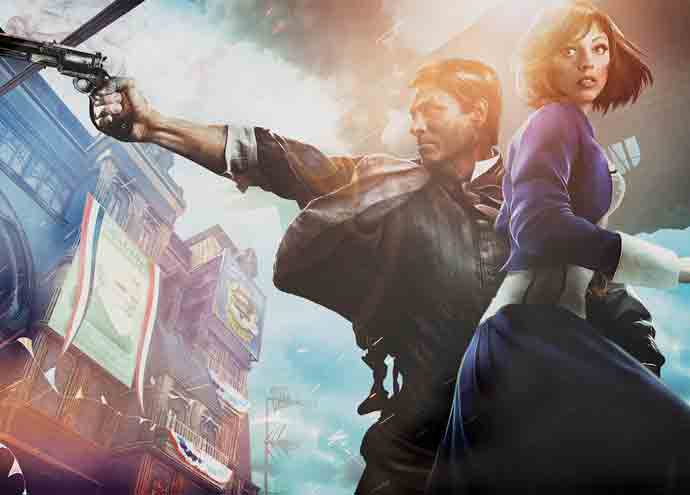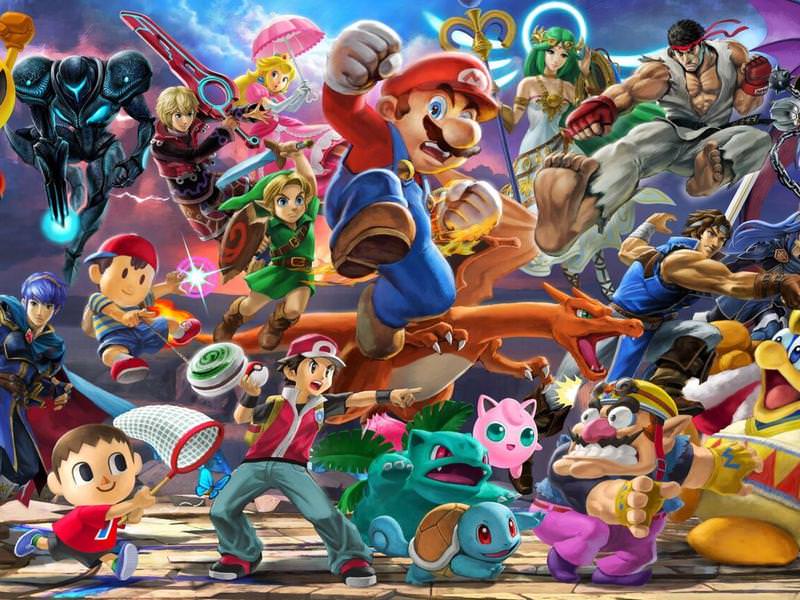‘BioShock Infinite’ Game Review: It Tells A Gripping Tale

BioShock Infinite (2K)
Last year, Sony signed a deal with Ubisoft to adapt its massively successful Assassin’s Creed franchise onto the big screen. Hollywood was shocked by the move because it gave Ubisoft unprecedented control. This creative freedom created a problem. “But they’re not moviemakers, and the only way to make sure it’s a bad movie is to undervalue what movie studios do — and this is a deal that totally undervalues what movie studios do,” a studio exec told Vulture.
Yet, movie studios have consistently put out atrocious video game movies such as Super Mario Bros., Street Fighter, and Doom. And after playing through 2K Games’s BioShock Infinite I have faith in a video game company’s ability to make a movie, because this game felt like one of the best movies I’ve ever seen.
BioShock Infinite immerses you in its world almost immediately. Taking control of a man named Booker DeWitt in 1912, you are whisked away into the clouds onto a beautiful array of floating islands that make up the city of Columbia. Everything is grand and majestic. There are parks to stroll through, fairground games to play, and rails to glide upon through the clear blue skies to the different gear propelled platform sections of the city. But as you delve deeper into the city, you find that Columbia had succeeded from the Union years prior and the society you are walking through represents the pre-racial America of the Gilded Age.
Led by Comstock, “The Prophet” and the Founders, the upper society of Columbia is full of white religious fanatics. Stoning an interracial couple is just fun and games to them. But they are all just sheep blindly following the orders of their corrupt Shepard. The workers that make their society work are hidden deep in the recesses of the sky city, away from the prosperity and wealth carved from their labor and enjoyed by the rich elite. They grumble as you walk past, lamenting about their long hours and low wages. Workers are confined to factory towns because that is the only place where the little money they earn is accepted. The poor live in shantytowns with only faint hope for them to get out. It’s all very reminiscent of the America that existed a century ago and the atrocities of pure capitalism that can still be viewed today in the Foxconn factory towns in China.
African-American Daisy Fitzroy leads the Vox Populi, a group that represents the underclass, in an attempt to overthrow the “evil” religious Founders. In today’s terms, the Vox Populi serves as the 99% to the Founders’s 1%. But as usual there’s no right and wrong with ideologies. It’s power that perverts them in a way synonymous to what is considered evil. Fitzroy’s cause may be “right,” but in the end she turns out to be a murderous villain just like Comstock.
Booker DeWitt stands on the outside of Columbia’s societal problems. He’s an enigma, neither good nor evil, with plenty of baggage from his past. “Give us the girl and wipe away the debt” is a phrase that’s repeated throughout the game as Booker attempts to recover a girl named Elizabeth for the Lutece twins. His mission is not as simple as it sounds because the girl is “special.” He quickly finds himself engulfed in the world of Columbia unexpectedly besieged on all sides in a fight for Elizabeth’s life.
While BioShock Infinite creates an unbelievable world, its gameplay is no slouch. You battle through waves of Founder fanatics, Vox rebels, and animatronic George Washingtons using an array of weapons. I chose to model Booker after Omar Little from The Wire with a China Broom Shotgun in hand and a Paddywhacker Hand Cannon in the holster. Booker is not just limited to guns. He can also use vigors, which are magical abilities that allow him to send ravenous crows at enemies, lift helpless soldiers into the air, and perform other shenanigans to help him deal with enemy combatants. The levels are designed in a way that you find yourself constantly moving to avoid being surrounded by enemies. Sky rails are plentiful, allowing you to take a serene break from the seemingly never-ending combat.
The real beauty of BioShock Infinite, though, is that it made me want to play the game so that I could learn more about the story. I had fun zipping around on the sky rails and shooting enemies like a revengeful stickup gangster. But I would have skipped it all if it meant that I could find out what was so important about Elizabeth sooner. Playing as Booker I felt that I was the one responsible for Elizabeth. I was fully sucked into the BioShock world, pondering its concepts of morality, racism, and anti-intellectualism.





